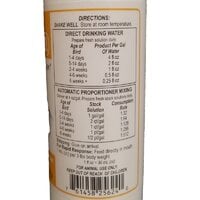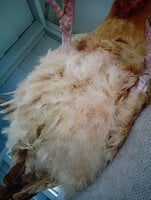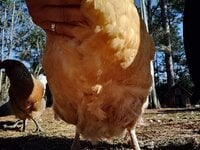I have a sick 7 year old BO hen.
She's not going to drink water, so I'll need to give it via dropper.
The bottle says 1cc per 3 pounds. That seems like a lot.
It also doesn't say how often.
She's got a very squishy/swollen abdomen. Not eating (though will still eat egg yolks raw and diced up tomato (like just one grape tomato and she's had enough). Not really pooping much and what she is pooping is liquid.
I've given her molasses, coconut oil, epsom salt bath - the local AG vet suggested poly vi sol vitamins, but could only find that with Iron, so decided to get nutridrench a try, but not really sure how much/how often.
Help please.
She's not going to drink water, so I'll need to give it via dropper.
The bottle says 1cc per 3 pounds. That seems like a lot.
It also doesn't say how often.
She's got a very squishy/swollen abdomen. Not eating (though will still eat egg yolks raw and diced up tomato (like just one grape tomato and she's had enough). Not really pooping much and what she is pooping is liquid.
I've given her molasses, coconut oil, epsom salt bath - the local AG vet suggested poly vi sol vitamins, but could only find that with Iron, so decided to get nutridrench a try, but not really sure how much/how often.
Help please.












